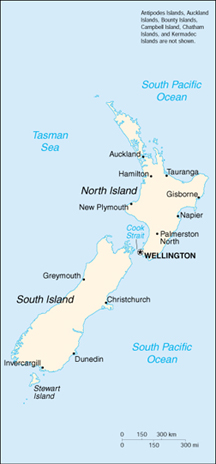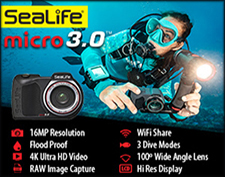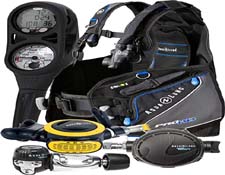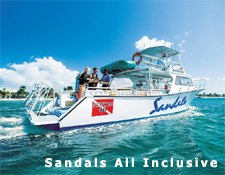New Zealand

 Year Round Destination
When is the best time to visit New Zealand?
You can visit New Zealand at any time of the year.
Summer and winter temperatures vary by only about
10'C over most of the country, making New Zealand an
ideal holiday destination all year round.
Year Round Destination
When is the best time to visit New Zealand?
You can visit New Zealand at any time of the year.
Summer and winter temperatures vary by only about
10'C over most of the country, making New Zealand an
ideal holiday destination all year round.
There are 4 quite distinct seasons - Spring (Sept-Nov),
Summer (Dec-Feb), Autumn/Fall (Mar-May) and Winter
(June-Aug). In summer there's plenty of sunshine, and
activities in and around the water include rafting,
snorkelling, diving and kayaking. You'll find snow on the
mountains in winter and excellent skiing. Away from the
mountains, New Zealand winters are mild and
temperatures generally do not fall below freezing.
Weather/Climate
New Zealand's seasons are the reverse of the Northern
Hemisphere. This means that the warmest months are
December, January and February, while the coldest are
in June, July and August. Don't let cold months put you
off - winters tend to be short and generally fairly mild.
Clothing
Dress is informal and relaxed on most occasions. Smart casual clothes
are acceptable at most restaurants and nightspots. Men are generally
not expected to wear suits and ties, except in a few of the top formal
bars and restaurants in major cities.
In summer a light jacket or sweater should be included in your luggage
should the weather turn cooler or you visit the high country. You can
expect some rain, so include a light waterproof jacket or coat. Pack
warm winter clothing if visiting between May and September. Layer
your clothing.
Entry Requirements
All visitors to New Zealand must carry
a passport that is valid for at least
three months beyond the date you
intend to leave the country.
Most visitors who intend to stay for less than 3 months do not require
a visa. If you want to stay longer than three months, or your country
of origin does not have a visa waiver agreement with New Zealand,
then you will need to apply for a Visitor's Visa.
Money matters
All major international credit cards can be used in New Zealand and
travellers' cheques are accepted at hotels, banks and some stores. If
your credit card is encoded with a PIN number you will be able to
withdraw cash from automatic teller machines (ATMs) situated at
banks and shopping centres throughout the country.
Health and Safety
New Zealand has no snakes or dangerous wild animals, making it safe
for visitors to enjoy outdoor activities.
New Zealand cities and towns have excellent water supplies and in all
cases tap water is fresh and safe to drink. Water from rivers and lakes
should be boiled, chemically treated or filtered before drinking to avoid
stomach upsets.
Electricity
Electricity is supplied throughout New Zealand at 230/240 volts (50
hertz), although most hotels and motels provide 110 volt AC sockets
(rated at 20 watts) for electric razors only. For all other equipment, an
adapter/converter is necessary, unless the item has a multi-voltage
option. Please note that power outlets only accept flat three or
two-pin plugs, depending on whether an earth connection is fitted.
Renting a car in New Zealand
The main international companies such as Avis, Hertz and Budget
operate in New Zealand. There are also local rental companies such as
Maui Rentals.
New Zealand Gateways
New Zealand's international airports are at Auckland, Wellington and
Christchurch. Some flights from Australia also land at Hamilton,
Palmerston North, Queenstown and Dunedin.
Trekking / Hiking information
Tracks such as the Abel Tasman, Heaphy and Queen Charlotte Sounds
Walkway located at the top of the South Island can be walked all year
round. However, those tracks at higher altitudes such as the world
famous Milford Track, Kepler and Routeburn are closed in the winter
due to snow. You must book the Milford and Routeburn tracks between
October and April.
If you like hot showers and other home comforts, you should book a
guided walk. But if you don't mind "roughing it a bit" then try
independent walking, carrying your own pack and staying in basic huts
or tents.
Accommodation
What types of accommodation are available in New Zealand?
You'll find a choice of different types of accommodation from top-class
hotels, exclusive lodges, motels, guest houses, and farm or home stays
to holiday parks and backpacker hostels in New Zealand. You might
also like the freedom to discover New Zealand at your own pace in a
campervan. Two, four or six berth vans are available to rent, offering
all the comforts of home including a shower, refrigerator and
microwave.
It's a good idea to book at least your first two nights in advance,
especially during the busy summer period in New Zealand - from
December to February. Visit the local Visitor Information Centre to book
further travel.
What is a "Farmstay"?
Farm and home stays are an ideal way to get to meet local people and
experience a slice of New Zealand rural life. Depending on the kind of
farm, you may get the chance to share home cooked meals with your
hosts and to join in with milking cows, shearing sheep, lambing, kiwifruit
harvesting or whatever else is happening on the farm.
Which international hotels chain operate in New Zealand?
Hyatt, Southern Pacific, Sheraton and Pan Pacific are found in the main
centres and resort areas. Room rates range from NZ$200 to NZ$1000+
per night.
New Zealand Culture
Wellington is the political, banking and financial centre for New
Zealand. The Parliament building known as the "Beehive" is one of the
city's top attractions. The National Archives, National Library and Old
Government Buildings (the second largest wooden building in the world)
are located nearby and are open to casual visitors free of charge.
What is a "Kiwi"?
The Kiwi, New Zealand's national emblem, is a bird that can't fly, has
hair-like feathers and a long, slender bill which it uses to pull worms
and insects out of the ground. Found only in New Zealand, it is active
at night in the wilderness areas of the country. Be sure to visit one of
the many Kiwi houses where you can watch them under special
"nocturnal" lighting.
New Zealanders often refer to themselves as Kiwis, and the term is
also used as a short form for the famous kiwifruit. On the stock
exchange, the New Zealand Dollar is also referred to as the Kiwi.
New Zealand Night-Life
Lively DJ and band scenes, particularly in the larger cities, have given
New Zealand's night life a renewed vibrancy. You will find a variety of
night-clubs, cabarets, pubs, concerts and live performances to choose
from, and there are also two casinos, in Auckland and Christchurch,
which are open 24 hours a day.
Activities For The Whole Family
What types of activities are available for the children?
If you are thinking about visiting with your family, you can be confident
that New Zealand has a wide range of activities to keep your children
happy.
New Zealand's parks and large areas of unspoilt wilderness mean it is
the ideal place to expand your children's appreciation of wildlife and the
outdoors. Horse riding, snow activities, whale watching, fruit picking
and wildlife centres and zoos are just some of the choices available.
If you are visiting the larger centres, you will find a range of themed
attractions including Rainbow's End (Auckland), Fantasy Land
(Hastings), Marine Land (Napier) and the International Antarctic Centre
(Christchurch). Te Papa, New Zealand's interactive national museum,
has a range of activities for the whole family to enjoy.
|


























